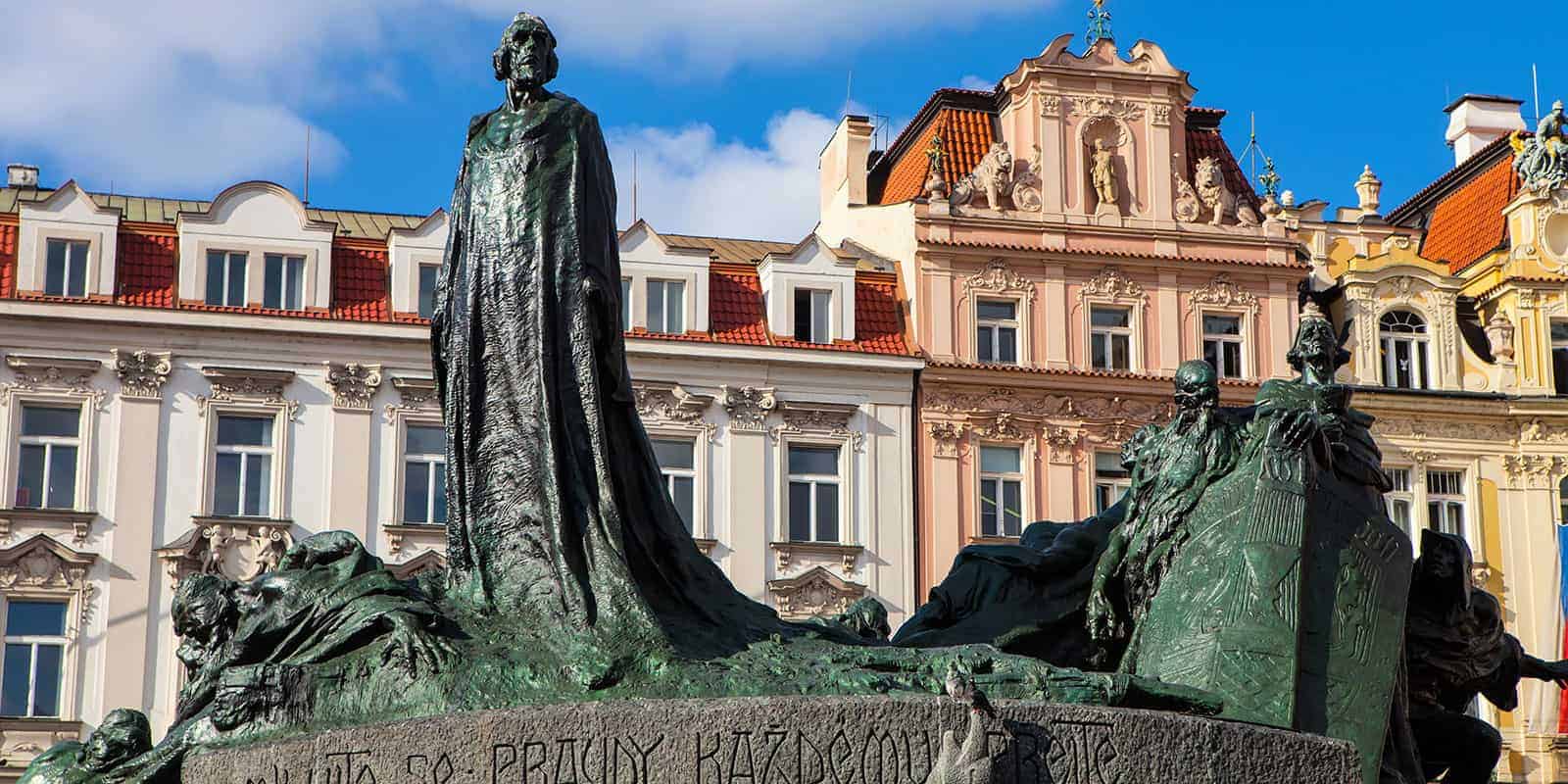
July 6th 2015 is the 600th anniversary of the burning of Czech reformer Jan Hus. Why remember Hus? Because he was a courageous pastor who called the church back to the Bible and whose writings and preaching anticipated the Protestant Reformation.
Recall that the late Middle Ages was a time of deep spiritual confusion for ordinary Christians in Europe. The Western church had grown in bureaucracy and wealth. Many of its leaders had become corrupt. There were three rival claimants to the papacy. Besides that, the church was drifting from Scriptures and losing the gospel. In short, the church was becoming deformed.
There were many voices calling for re-formation. But one of the loudest voices was that of this Bohemian priest named Hus.
Jan Hus (often referred to in English as John Hus or John Huss) was born in 1372 near the Bavarian border of what is now the Czech Republic. Sometime early in his ministry Hus experienced a radical conversion that we do not know much about—except that around the time, Hus was deeply influenced by the writings of the English Reformer John Wycliffe. Wycliffe is sometimes referred to as “the morning star of the Protestant Reformation.”
Hus was part of the philosophy faculty of the University of Prague. He was also named pastor of a mega church in that city called Bethlehem Chapel. As a professor and a preacher he began calling for religious reforms across Bohemia.
At first Hus had wide support. In his preaching, he drew crowds of several thousands. But in time, the Bohemian bishops began to speak against him and started to ban his writings. Why?
From his pulpit Hus criticized the immorality of the clergy. Like Luther, he preached against indulgences and said you can’t buy forgiveness. Hus said that people should obey the church only when the church agreed with the Bible. He added that even the pope and bishops are under the rule of Christ and his Scriptures.
Besides that, Hus preached to the people and read the Scriptures, not in Latin, but in their own language. He also said that the church was wrong to withhold the cup from lay people during communion.
In defending himself, Hus explained that the church is more than its rulers and hierarchies. One of Hus’s enemies defined the church as consisting of the pope and his cardinals only. Hus replied that the church is the people of God, the elect. Its true head is Christ. The church is his body.
The way Hus spoke of the church challenged papal supremacy. This became too much for the pope and his archbishop. They perceived Hus was a threat to the very foundations of imperial and ecclesial monarchy. So in 1409, the pope ordered him to stop preaching from Bethlehem chapel. Hus would not give up his pulpit. The local archbishop excommunicated him twice. It still had no effect, until the pope placed the entire city of Prague under interdict.
Interdict meant the clergy was forbidden from preaching, performing weddings, serving communion or presiding at any religious services. In other words, it cut off the people from all spiritual benefits and services.
At first the local king, Wenceslaus IV, supported Hus and ignored the interdict. But he later turned on the reformer because of Hus’s preaching against indulgences. The not so good King Wenceslaus needed the revenue, so he began to enforce the pope’s interdict.
Hus went into exile for two years to write. In 1414 he was summoned to appear before the Council off Constance to answer charges of heresy. The Holy Roman Emperor promised Hus safe travel and a safe return home. But the promise were immediately broken. Hus was arrested and imprisoned.
The council convicted Hus of heresy and condemned him to die. On July 6, 1415, 600 years ago, he was stripped of clerical robes, decorated with dunce cap embellished with drawings of demons and burned. Eye witnesses said that before dying, Hus expressed his hope that stronger voices of reform would soon arise. He died singing psalms and the flames enveloped him.
Hus’s ashes were disposed of in the Rhine River. Some say that this only spread his influence, for soon there was Hussite movement in central Europe that spread his teachings everywhere.
And greater voices did arise. For a little more than 100 years later, another courageous professor-pastor in Germany named Martin Luther began calling for the same reforms.
Hus remains a symbol of reform in parts of Eastern Europe. As recently as 1989, during the peaceful revolution to end communism in Eastern Europe, protesters carried signs quoting Hus’s maxim “truth prevails.” And in 1999, Pope John Paul II expressed regret for the cruel death of Hus and actually praised Hus for his character and reforms.
So today, on this anniversary of Hus’s death, let us remember that truth does prevail and let us thank God for pastors and teachers who courageously call the church back to the Word of God.
